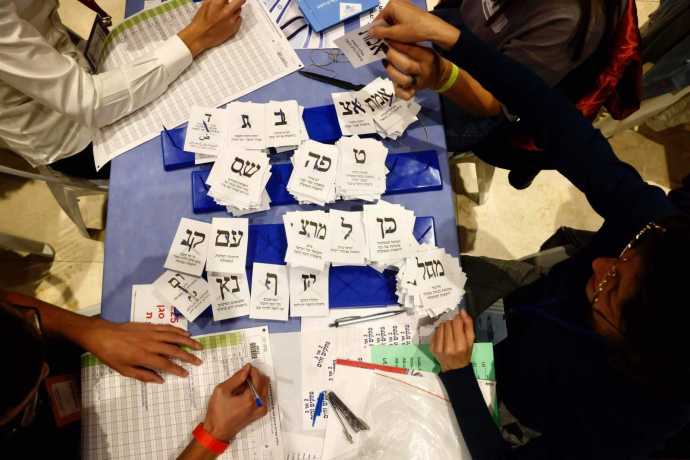I read Thomas Friedman’s New York Times column, “The Israel We Knew Is Gone,” once, twice and a third time, repeatedly pinching myself for a reality check.
In his piece, Mr. Friedman described the incoming Israeli coalition government as “the far-far-Right coalition.” It is a coalition, he argues, that threatens minority rights, regional stability, and even the very underpinning of Israeli democracy.
From one of America’s leading columnists, who has lived in Israel and visited numerous times over four decades, a myopic end-of-days view was presented in his widely read piece. Not one word about a little country, located in a hostile neighborhood, which has endured many wars and military operations resulting in the loss of many, many civilians and soldiers.
Not a word about a thriving economy based on a rich start-up industry that offers global solutions. Not a word about successful and integrated Israeli minorities.
Also significantly missing was any word about the democratic process that elected Israel’s new government, a parliamentary process quite different from the United States.

Let’s break this down. Out of 40 parties that ran in the November 1 elections, only 10 crossed the 3.25% threshold, thereby gaining seats in the Knesset, Israel’s parliament. Only one list, Religious Zionist, is considered far-Right, and it garnered 11% of the total seats in the Knesset. In other words, almost 90% of Israelis voted for a variety of other parties across the political spectrum.
Likud, led by Benjamin Netanyahu, won 32 Knesset seats, half of the bloc of parties that recommended President Isaac Herzog ask him to form the next coalition government, and head it as prime minister.
Friedman’s doomsday predictions reflect his own political beliefs. But is he right? Did the entire country I have lived in my whole life suddenly become so extreme? Is the foundation of Israel’s vibrant, diverse society under a domestic threat from those elected to represent Israelis?
LET’S PUT this in perspective. The radical AfD won 11% of the vote in Germany’s elections last year, yet no one fears for Germany’s minorities or democracy as a result. Italy’s far-right Brothers of Italy Party won 26% of the vote in elections two months ago. These are the outcomes of democracy, even if they are results we detest.
Friedman suggested that American Jews going to synagogues across the country will now ask themselves whether or not they should support Israel. He posits that this question will haunt pro-Israel students on campuses, US lawmakers and diplomats, and Israel’s newfound allies in the Gulf.
The deeper meaning behind what Friedman is suggesting is quite simple, but nevertheless disappointing: Only if the results of the elections in the only democracy in the Middle East satisfy his political beliefs, will it be best to support Israel.
Israel’s exemplary democracy is strong
Two years ago, an Arab faction, the Joint List, was the third largest party in the Knesset. There was not one word about a country with liberal values that has openly gay parliamentarians.
And nothing about a party affiliated with the Muslim Brotherhood, Ra’am, that not only is allowed to join the political system, unlike in neighboring countries, but served in the last Israeli government.
I am not surprised. These truths do not comply with the picture Friedman would like to paint. Allow me to calm all those concerned after reading his column: Israel, the homeland of the Jewish people, will continue to be a strong democracy for all its citizens. Israel will continue to respect the LGBTQ community as it has done in past decades.
Israel will continue to invest efforts in expanding the Abraham Accords. Israel will continue to fully respect the “law of the safe keeping of the holy places,” legislated in 1967, and will not change the status quo of the Temple Mount.
Finally, Israel will continue to be “a light unto the nations” on numerous issues.
True, some members of the incoming government have made problematic statements. But governments should be judged on actions during their term, not on previous statements.
While it’s fair to criticize, ceasing to support Israel over its elections is in and of itself counter to democratic values.
The writer, a Lt. Col. (Res.), is director of the American Jewish Committee’s (AJC) office in Jerusalem.
